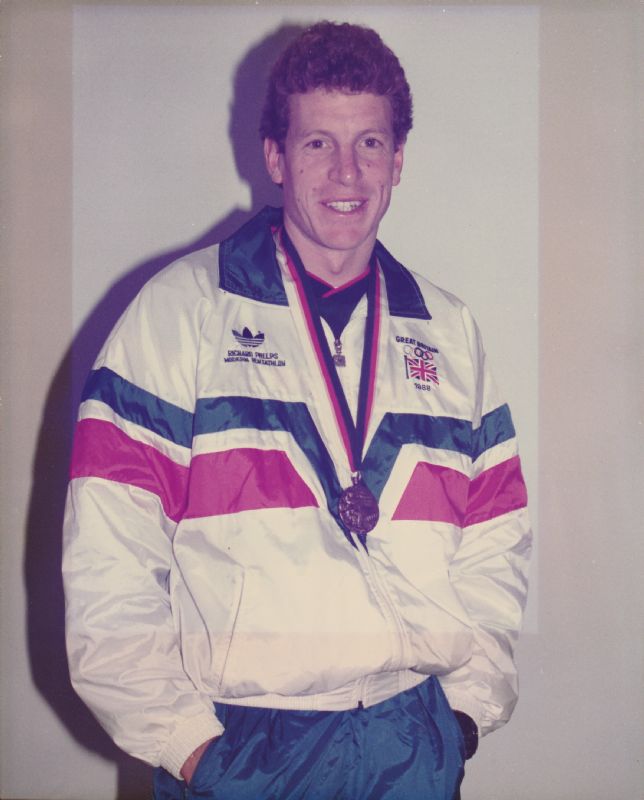- Home
- News, Articles & Reviews
- All Sport
- Cricket
- Cycling
- Football
- Golf
- Horse Racing
- Rugby Union
- Angling
- Archery
- Athletics
- Basketball
- Bowls
- Boxing
- Croquet
- Dance
- Darts
- Diving
- Duathlon
- Equestrian
- General
- Gymnastics
- Hockey
- Martial Arts
- Modern Pentathlon
- Motorsport
- Mountain Biking
- Netball
- Padel
- Parasport
- Polo
- Powerboating
- Powerlifting
- Rowing
- Rugby League
- Running
- Scuba Diving
- Shooting
- Skiing
- Skittles
- Snooker
- Squash
- Swimming
- Table Tennis
- Tennis
- Triathlon
- Tug of War
- Walking
- Walking Football
- Water Polo
- Weightlifting
- Wheelchair Tennis
-
Sport
- All Sport
- Cricket
- Cycling
- Football
- Golf
- Horse Racing
- Rugby Union
- Angling
- Archery
- Athletics
- Basketball
- Bowls
- Boxing
- Croquet
- Dance
- Darts
- Diving
- Duathlon
- Equestrian
- General
- Gymnastics
- Hockey
- Martial Arts
- Modern Pentathlon
- Motorsport
- Mountain Biking
- Netball
- Padel
- Parasport
- Polo
- Powerboating
- Powerlifting
- Rowing
- Rugby League
- Running
- Scuba Diving
- Shooting
- Skiing
- Skittles
- Snooker
- Squash
- Swimming
- Table Tennis
- Tennis
- Triathlon
- Tug of War
- Walking
- Walking Football
- Water Polo
- Weightlifting
- Wheelchair Tennis
We are hiring! Please click here to join our growing magazine delivery team in Gloucestershire!
Areas
Sport
Archive

Back in the Day: Richard Phelps – a world champion and Olympic medal winner
Author: Roger Jackson, Posted: Thursday, 24th August 2017, 09:00, Tags: Back In The Day
Richard Phelps knew from the age of six that he wanted to be a modern pentathlete.
That was when he saw his uncle Robert Phelps taking part in the sport in the 1968 Olympics in Mexico and even at that tender age he knew it was for him.
“I remember being allowed to stay up to watch the opening ceremony,” the Gloucester-born Phelps said. “We watched it on a black and white TV and I spotted my uncle walking round on the track.
“I thought at the time that I’d like some of that.”
Robert Phelps was to have a big influence on his nephew’s career, a career that saw him compete in four Olympics – winning a team bronze in 1988 – being crowned world champion in 1993 and winning national titles by the bucketload.
Robert was no mean modern pentathlete himself, competing at three Olympics from 1964 to 1972. He was introduced to the sport by Hungarian migrant Josef Buszco, who fled to this country in the late 1950s following the invasion of his country by the Soviet Union.
Buszco had been a decent modern pentathlete in his home country and when he arrived in Gloucester he told anyone and everyone about the beauty of a sport that involved five disciplines – running, shooting, swimming, horse riding and fencing.
Two of those who listened were Robert and his brother John, who was Richard’s dad.
Together they formed the Spartan Modern Pentathlon Club and while the amount of time John could give to the sport was restricted by family and work commitments – he ran a scrap metal business in the heart of the city which his son now runs today – Robert flourished in the sport.
And although he did not enjoy the same success as his nephew he was one of the driving forces as Richard took modern pentathlon to a new level in this country.
“It was my uncle who got me into modern pentathlon,” said Richard, now 56. “By the age of nine I was swimming, running and horseriding and by the age of 12 I’d started fencing and shooting.
“You need someone to show you the ropes and my uncle was great for me. It was a lot of hard work. I was naturally talented at running and swimming but that was it.
“Even at the age of 15 I was still getting beaten by some other kids at school at swimming and running, but after I left school I started to grow, got stronger and that’s when things started to happen to me.”
School was not something that Phelps, who was living with his family in Upton St Leonards, enjoyed and he admits that he left Brockworth School as soon as he could. “I got a handful of GCSEs,” he said but he was far more intent on seeing what grades he could get in his chosen sport in the big world outside.
Working for his dad meant that he was able to find plenty of time to train and the hard work paid off almost immediately as he was selected to represent Great Britain in the under-21 world junior championships in San Antonio in 1977.
“I think I came last,” he said ruefully. “I got zero points in the ride but I’d had a good fence and put in a reasonable run so there was hope for the future.”
That optimism was justified because a year later he finished “12th or 13th” in the same tournament in Sweden.
“That was a big leap forward,” he said, “I felt I was making good progress.”
Indeed he was and in 1979 he was selected to take part in the senior world championships, although that was to end in disappointment.
“I’d been getting the best results of all the seniors, but when we got to Hungary they told me that I’d only be a reserve. That cheesed me off,” he said. “The selectors said I wasn’t ready to compete.”
It was easy to understand Phelps’ annoyance because he had won both the national and junior titles that year.
And despite those successes there was to be more disappointment in 1980 when he picked up a foot injury at the start of the year.
It forced him out of one international but he still felt he had done enough to gain selection for the 1980 Moscow Olympics. Unfortunately for him the powers-that-be thought otherwise as they selected the same team that had competed in the world championships the previous year.
As if to make his point, Phelps finished second in the 1980 world junior championships, one place ahead of Anatoly Starostin who took gold in the Moscow Games.
“As far as I was concerned that was proof to the selectors that they’d made the wrong choice,” he said.
In 1981 he finished 12th in the world senior championships in Poland – “That was a good result,” Phelps said – and fifth in the junior worlds and a year later he finished third in the junior world championships in Crystal Palace,
His performances were such that he was an absolute shoo-in for the 1984 Olympics and he carried that form into the competition in Los Angeles.
He was on course for a medal before being knocked off target in the shooting.
“I was really nervous,” recalls Phelps, “and it cost me. I felt at the time that if I’d have been selected for Moscow four years earlier I’d have had the experience to cope with the nerves.
“In the end, I finished fourth which was a good result but it could have been so much better.”
Four years later he did get his hands on a medal when he was part of a Great Britain modern pentathlon team – including Cheltenham’s Graham Brookhouse – that finished third.
In those days Great Britain weren’t winning the sackful of medals that they are today and Phelps said proudly: “Winning that medal was a big deal.”
An even bigger deal was just around the corner, however, as Phelps was crowned world modern pentathlon champion in Germany in 1993.
“That was pretty special,” he said, “because it was an all Gloucester team. My uncle was coaching me and Martin Dawe, who was another former modern pentathlete, was my team manager.
“We’d had our funding cut that year so to win the title was a great effort.”
It also made up for the disappointment of the Olympics the previous year when Phelps saw his medal chance ride off, literally, into the Barcelona sunset.
“I’d had a good Games,” he said. “I was in fifth place going into the horseriding and if I’d have knocked only one fence down I’d have won the silver. If I’d gone clean I’d have won gold.”
In the event, he had “a whole host of fences down and finished 12th or 13th”.
One of the problems for modern pentathletes is that they never know which horse they are going to ride until just before the actual discipline.
“It can be a bit of a lottery,” admitted Phelps. “The horses were all over the place in terms of ability in Barcelona. It’s not so bad these days because the fences aren’t as high as they used to be so that levels things out a bit.”
Phelps was to have one more opportunity to shine on sport’s great stage but his preparations for Atlanta in 1996 were hampered by a virus which he picked up at the beginning of the year.
“I was playing catch-up all season,” he said. “I worked really hard but although I had a good run and a good swim in Atlanta I had a bad fence and struggled in the shooting.”
He finished 18th overall but there was still plenty of legs in his career as he continued to compete, winning his 13th and final national title as late as 2000.
That was pretty much his last hurrah in a sport that he describes as “a good fun sport”.
Throughout his 20 years-plus at or near the very top of his sport Richard was grateful to have his uncle Robert by his side.
Robert was 10 years younger that Richard’s dad – who sadly died earlier this year – and at the age of 78 still competes in age group international fencing.
The big disappointment in his career was missing out on a place in the modern pentathlon team in the Montreal Games in 1976 when Great Britain won team gold.
But after stepping back from frontline competition he channelled all his energies into helping Richard become the best he could at the ‘family’ sport.
“He won national championships so he had loads of knowledge,” said Richard. “He saw something in me and he went all out to help me achieve it.
“But it wasn’t just me he supported. He was Great Britain coach from 1977 to 1996 and was instrumental in us winning the world team bronze in 1987 and the European Championships in the same year.”
These days Richard, who is married to Teresa with whom he has three children – Aaron, 23, Jane 21, and Jessica 18 – is happy living in Amberley with bags of good sporting memories.
His only regret when he looks back on his life in sport is that he competed at a time when the illegal use of drugs was rife.
“Yes, I was competing in an age when there were a lot of drugs about,” he said, “but there was nothing we could do about it. They still can’t control it now. There was no chance back then.”Copyright © 2024 The Local Answer Limited.
Unauthorized use and/or duplication of this material without express and written permission from this site's author and/or owner is strictly prohibited. Excerpts and links may be used, provided that full and clear credit is given to The Local Answer Limited and thelocalanswer.co.uk with appropriate and specific direction to the original content.More articles you may be interested in...


© 2024 The Local Answer Limited - Registered in England and Wales - Company No. 06929408
Unit H, Churchill Industrial Estate, Churchill Road, Leckhampton, Cheltenham, GL53 7EG - VAT Registration No. 975613000You are leaving the TLA website...
You are now leaving the TLA website and are going to a website that is not operated by us. The Local Answer are not responsible for the content or availability of linked sites, and cannot accept liability if the linked site has been compromised and contains unsuitable images or other content. If you wish to proceed, please click the "Continue" button below:




